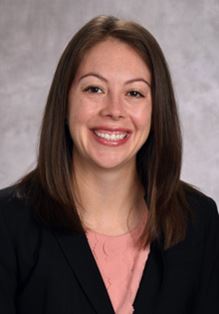2161-2170 of 2833 Results Found
CME Session
SURG - Contemporary Management of Primary Spontaneous Pneumothorax in Children - James Prieto, MD
At the end of this presentation, participants should be able to: Define primary spontaneous pneumothorax in pediatric patients and distinguish it from secondary causes Review epidemiology and risk factors associated with spontaneous pneumothorax Summarize current evidence based
Doctor
Stewart Goldman, MD
Senior Vice President, Research; Chair, Department of Child Health
Specialties

Conditions We Treat
Children can be born with a motility disorder or develop one later. Some motility disorders are caused by a problem with the child’s anatomy or by another medical condition. Others are caused by poor habits learned during potty training. The Neurogastroenterology and Motility
Governance Structure
PCCN Board of Managers The Board of Managers takes all necessary and appropriate actions to direct and supervise the business and affairs of Phoenix Children’s Care Network. Christine Holmes, MD , Chair Arturo Gonzalez, MD , Vice-Chair Kristin McCleland, MD Michelle Bruhn, CFO

Condition
The Thyroid Gland Anatomy of the thyroid gland The thyroid gland is found in the front of the neck. It sits below the voice box (larynx) and on top of the trachea (windpipe). It has a butterfly-like shape. The small, 2-inch gland consists of 2 lobes, 1 on each side of the
Condition
Cystic Fibrosis and the Digestive System How does CF affect the digestive system? Children with cystic fibrosis (CF) have a protein in their cells that doesn't work right. The protein is called CFTR (the cystic fibrosis transmembrane regulator). CFTR controls the flow of water
Condition
Uniparental Disomy: Prader-Willi Syndrome and Angelman Syndrome What is uniparental disomy? Chromosome pairs affect how our body works. Normally, a baby gets 1 copy of each chromosome pair from each parent. This means 1 copy from the genetic mother, and the other copy from the
Service
The kidney transplant program at Phoenix Children's began in 2002, and since then, we have performed more pediatric kidney transplants than any hospital in Arizona. Our experienced team provides the high-quality care and support children need with a personalized, family-centered
Service
The Stephen C. Grout Adult Congenital Heart Disease Program at the Center for Heart Care at Phoenix Children’s seamlessly bridges the gap between pediatric and adult cardiology so that patients receive the best possible cardiac care – regardless of age. Our team of specialists
